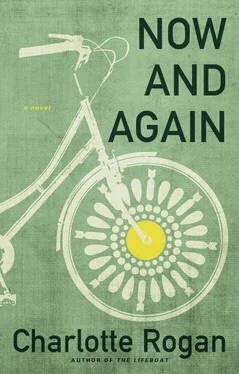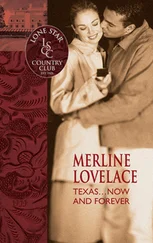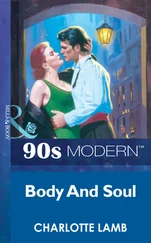“Just after our fifth anniversary, my ex decided, ” said Lily. “Does ‘decided’ work for you, Lieutenant Sweets?”
“Okay, okay,” said the bartender, butting in. “This isn’t the grammar society. What did he decide?”
“That it was a good thing to have an affair. It took the edge off, is what he thought — or at least that’s what he allowed himself to think. People don’t like to think they’re doing a bad thing — Bertie was no different from anyone else in that regard, and I guess we aren’t either.”
“Dang, Lily,” said Jimmy. “You didn’t hear a thing I said.”
“I heard you all right,” said Lily. “I guess people think what they think and come up with the reasons why after the fact.”
“That’s not what we do, is it Lyle? We’re critical thinkers. Rational man — notice how they don’t say woman, Lily? Notice how they don’t say chickens? We’re warriors in pursuit of truth.”
“We’re almost like troops ourselves,” said Lyle, flexing his muscle against the bandage just so he could feel the pain of the place where the filings went in. He was surprised to find his ideas were so fully developed and easy to express. Then he realized it wasn’t the ideas that were new, but the words, and definitely the attitude. He probably wouldn’t have said anything if Maggie had been there to finish his sentences for him — to drown him out, if he was to be honest about what she did. It was almost as if he was finally arguing with her, as if his words had developed in reaction to the words she would have said, words he could picture flying out of her mouth, slippery and persuasive, but which he didn’t agree with at all. He glared at Lily and said, “Did you ever consider that he had an affair because you were smothering him, Lily? And Jimmy’s right, we didn’t have to convince ourselves.”
“Gosh, Lyle, it’s just my opinion, that’s all. Can’t a girl have an opinion around here?”
Lyle felt kind of proud that Lily was fidgeting in her seat and looking at him as if he was a bully or something, as if he was some kind of untrained alpha dog.
When Lily left to go home, Lyle went after her, settling the aviator glasses on the bridge of his nose even though night had fallen and the dark lenses made it harder to see. He had nothing in mind but to prolong the sense of competence and belonging that had enveloped him in the bar and possibly to apologize for treating her roughly, but as he walked into the fragrant springtime air and followed Lily into a side street, the feeling turned into something new and disquieting. She walked with her head down and didn’t turn around even though Lyle’s shoes made clacking sounds on the pavement. Doesn’t she know I’m here? he wondered. A dog barked at their passing, but still she didn’t seem to notice him. She must be hard of hearing — or she was purposely ignoring him, leaving the decision to follow her entirely in his hands. Something is beginning, thought Lyle. It was like watching the first part of a movie as he settled into his seat, taking off his jacket or unwrapping his candy bar and listening half-interested/half-annoyed to the whispered conversations coming from the people around him who were still settling in too, until suddenly he was swept up in the on-screen action and hurtling with the hero toward the point of resolution or disaster.
Lily turned left on Maple and left again on Pine, where a row of two-story dwellings had been turned into apartments. Only when she was standing on the porch of a downstairs unit did she turn and say, “You might as well come in,” in a low, come-hither voice. Lyle had stopped behind a row of crape myrtle trees, still trying to decide if he was going to declare himself or walk away. Just as he was about to step forward, a tall shape detached itself from a rocker and followed Lily into the house.
Now Lyle was just as eager to remain hidden as he had been to be seen a moment earlier. He kept to the shadows as he went back up Pine to Maple, walking on the grassy verge to muffle his footsteps. To be honest, he was relieved that it wasn’t up to him after all, and he drove home newly aware of a great web of networked futures and how he could live just one of them and how that one would only be revealed slowly and how he could quickly get tangled up in an alien future merely by stepping out from behind a crape myrtle tree at exactly the wrong time.
3.6 Maggie
The file room was accessed through a maze of stairs and corridors that tunneled through the hill on which the prison was set. Its only natural light came from two windows that were set too high up to see out of except by wheeling one of the access ladders to the window and climbing up the steep steps. Every time she entered the room, Maggie felt an urge to climb up and look out, but the ladders were never in the right position and some of them were missing rungs or wheels, so she never did.
On hot days, she liked to linger in the cool, dark room that smelled of concrete and dust. A central dehumidifying system worked day and night to keep the room dry, and when she closed her eyes she could turn the white-noise sound of it into the roar of a rushing river just by imagining it. Sometimes she paged at random through the files, and with the men reduced to paper abstractions, she could feel sorry for them in a way that was hard to do when she was confronted with the hissing reality of the convicts in the yard: fostered since the age of seven; history of mental illness; abused by alcoholic father; resorted to crime after dropping out of school; after being orphaned; after losing job.
The file room held the essence of the men, but not the body odor or bad teeth. Not the hopes and dreams. Some of the despair was there, though, and some of the heartbreak, so when she located Tomás’s file in a dark recess of the room, she experienced a blast of tenderness. It was only when she opened it and saw the fuzzy mug shot and fingerprints that she remembered his fawning and guile.
It was silly to think anyone knew what she was doing, but as she read, she couldn’t help sensing eyes on her — on her neck, on her back side, peering up under her skirt from beneath the ladder she had climbed to access the file or down from the dingy egg crate fixtures, as if someone had put hidden cameras in the room or opened a folder containing intimate facts about her — facts and vital statistics, but also photographs and things she didn’t want anyone to know.
But the feeling of being watched didn’t stop her from poring over Tomás’s record with the idea that she might find something that would tell her whether he was guilty or not, which in turn might tell her what her attitude toward him should be. Only when she came upon a list of the things that had been in his pockets when he was arrested (a book of matches, a dollar coin, a picture of his girl) did she think, I don’t want to know anything about Tomás. I know quite enough already! Just as she was closing the folder to return it to its slot, a sheet of paper fell to the floor. It must have been tucked up between the pages, not affixed by the two-prong binding but stuck in casually, almost as an afterthought.
The page was dated two years after Tomás had been convicted, and a penciled note was scrawled across the upper right-hand corner: Witness recants. The rest of the page contained only a short paragraph purporting to be the words of John Gill, who now claimed that he had testified against Tomás in order to reduce his own sentence, that he had no knowledge of the crime Tomás was supposed to have committed, and that he had never met Tomás or even heard of him until he was being interrogated by detectives who offered to go easy on him if he could provide information that would help them get a conviction in the murder of the gas station attendant. Gill did his best to help them, but then he had found Jesus, and Jesus would want him to tell the truth.
Читать дальше












